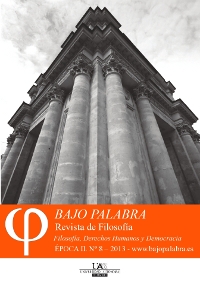Keywords:
Human rights, universality, rationality, ethics, fundamental rights, constitutional identity, generations of rights, internationalization of rights, multiculturalism, legal moralism, cultural relativism, critical morality, positive moralityCopyright (c) 2013 Cristina Hermida del Llano

This work is licensed under a Creative Commons Attribution 4.0 International License.
Abstract
Human rights represent a minimal set of universal ethics that permit them to qualify as moral rights. They are characterized by reason and abstraction, consistent with the fact that all of mankind is endowed with them. Fundamental rights, on the other hand, encompass values or aims that are considered to be of sufficient importance to be accorded protection by the rule of law—these represent the core of our constitutional identities in the modern age. For this reason, these rights are protected by the judicial system. Nonetheless, the universality of rights is under threat by cultural relativism and nationalism, as these undermine the idea that there is unity in the human condition and a humanistic universality of man’s moral purposes.
